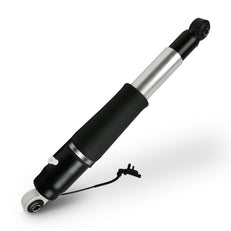In today's world, air conditioning systems are essential for maintaining comfort in homes, offices, and vehicles. At the heart of these systems lies the compressor, a vital component that plays a significant role in the refrigeration cycle. Understanding how a compressor functions can help you appreciate its importance in modern air conditioning.

What is a Compressor?
A compressor is a mechanical device that increases the pressure of a gas by reducing its volume. In air conditioning systems, it compresses refrigerant gas, which is crucial for the cooling process. By converting low-pressure refrigerant gas into high-pressure gas, the compressor enables the refrigerant to flow through the system, absorbing and releasing heat effectively.
Types of Compressors
There are several types of compressors used in air conditioning systems, each with unique characteristics:
- Reciprocating Compressors: These use pistons to compress the refrigerant and are known for their efficiency and reliability.
- Scroll Compressors: Featuring a spiral design, these compressors are quieter and more efficient, making them popular in residential units.
- Screw Compressors: Commonly used in large commercial systems, they utilize two rotors to compress the refrigerant, providing high efficiency.
- Centrifugal Compressors: These are used in large-scale applications and rely on a rotating disk to increase refrigerant pressure.
How Does a Compressor Work?
The operation of a compressor can be broken down into several key stages:
- Intake: The compressor draws in low-pressure refrigerant gas from the evaporator.
- Compression: The gas is compressed, raising its pressure and temperature.
- Discharge: The high-pressure gas is then sent to the condenser, where it releases heat and transforms into a liquid.
This cycle continues, allowing the air conditioning system to cool indoor spaces effectively. Without a properly functioning compressor, the entire system would fail to operate efficiently.
Maintenance Tips for Compressors
To ensure the longevity and efficiency of your air conditioning system, regular maintenance of the compressor is essential. Here are some tips:
- Check and replace air filters regularly to ensure proper airflow.
- Inspect the compressor for any signs of wear or damage.
- Keep the surrounding area clean and free of debris.
- Schedule professional maintenance at least once a year.
By following these maintenance tips, you can help your compressor function optimally, ensuring a comfortable environment in your home or office.
Conclusion
In conclusion, the compressor is a critical component of modern air conditioning systems. Understanding its function and types can help you make informed decisions regarding your HVAC needs. For those interested in enhancing their vehicle's air suspension systems, consider exploring options available at  . A well-maintained compressor not only improves efficiency but also extends the lifespan of your air conditioning system.
. A well-maintained compressor not only improves efficiency but also extends the lifespan of your air conditioning system.



